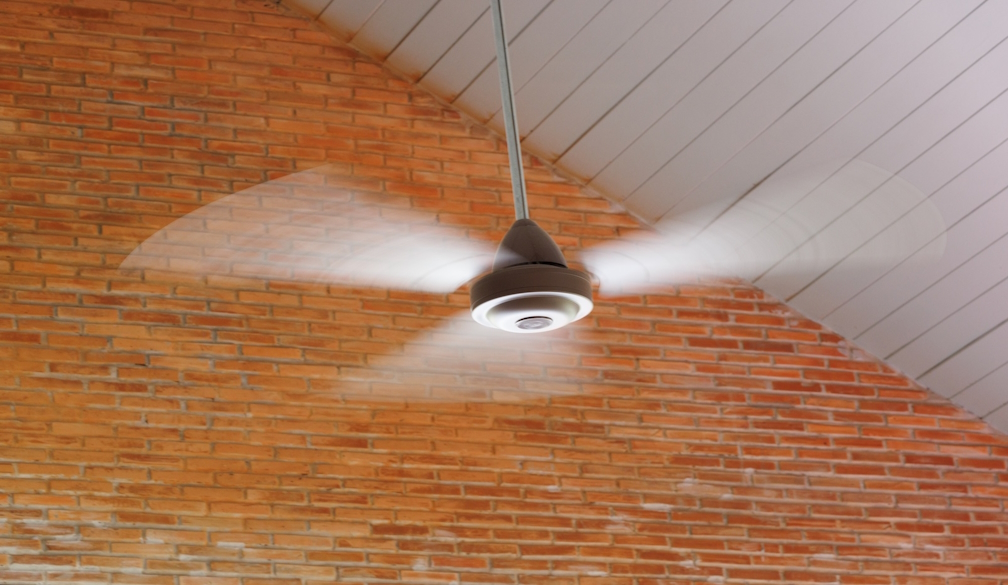Why Energy-Efficient Ceiling Fans Are a Smart Business Move for Australian Workspaces

In the push toward sustainable operations, more Australian businesses are rethinking how they cool their spaces. Whether it’s an open-plan office, a boutique showroom, or a shaded breakout area, even a large outdoor ceiling fan can make a noticeable difference in comfort while significantly reducing energy costs. With electricity prices rising and climate goals becoming more urgent, energy-efficient ceiling fans offer an ideal combination of practicality, affordability, and environmental responsibility.
The Energy Challenge in Australian Workplaces
Australian businesses face a dual challenge: keeping employees comfortable during scorching summers while managing ever-increasing power bills. Air conditioning, while effective, is one of the largest energy consumers in commercial settings—particularly in open or high-traffic areas.
According to the Australian Department of Climate Change, Energy, the Environment and Water, commercial buildings account for around 10% of total national energy use. Much of that is attributed to heating, ventilation, and air conditioning (HVAC) systems. For small to mid-sized businesses, this translates into high overheads and a growing carbon footprint.
Why Energy-Efficient Ceiling Fans Are a Smart Alternative
Energy-efficient ceiling fans use a fraction of the electricity that traditional air conditioning systems require. In fact, ceiling fans can reduce perceived room temperatures by up to 4°C while using up to 80% less energy than an AC unit. When used in conjunction with air conditioning, they allow businesses to raise the thermostat setting without sacrificing comfort—further driving down energy usage.
Unlike bulky HVAC systems, ceiling fans are simple to install, easy to maintain, and don’t require ductwork. Modern models are designed to operate quietly, making them suitable for offices, retail spaces, hospitality venues, and hybrid work environments.
Key Benefits for Australian Businesses
1. Lower Operating Costs
Every kilowatt-hour saved on cooling directly impacts the bottom line. Ceiling fans consume as little as 15–90 watts per hour, compared to 2,000–3,500 watts for typical air conditioning systems. Over time, this adds up to significant savings—especially in large or continuously occupied spaces.
2. Support for Sustainability and Green Certifications
Australian businesses are under growing pressure to align with environmental initiatives and reporting standards such as Green Star, NABERS, and ESG frameworks. Energy-efficient ceiling fans contribute to lower emissions and improved energy ratings—helping companies achieve compliance while demonstrating genuine environmental leadership.
3. Improved Employee Comfort and Productivity
Workplace comfort directly influences productivity and wellbeing. Studies show that even small improvements in thermal comfort can enhance focus and satisfaction. Ceiling fans provide gentle, consistent airflow without the dryness or noise often associated with air conditioners. In breakout zones or collaborative spaces, fans help maintain a refreshing environment that keeps energy levels high.
4. Versatility for Indoor and Outdoor Workspaces
Ceiling fans are not limited to traditional offices. In creative workspaces, retail outlets, cafés, and coworking hubs, fans are an ideal solution for both indoor and outdoor comfort. A large outdoor ceiling fan, for instance, can transform an underutilised patio or balcony into a fully functional workspace or break area—extending your usable square footage without added energy demand.
What to Look for in an Energy-Efficient Ceiling Fan
Not all fans are created equal. When selecting a model for your commercial space, look for the following features:
- DC Motors: Quieter, more efficient, and longer-lasting than traditional AC motors.
- High Airflow Rating (CFM): Ensures effective circulation in larger spaces.
- Reversible Functionality: Allows year-round use by pushing warm air down in winter.
- Smart Controls: Programmable timers, remote control, and smart integration can optimise usage and reduce waste.
- Durability: Especially important for outdoor models exposed to the elements.
Businesses with large common areas should consider high-volume, low-speed (HVLS) fans that move large amounts of air gently and efficiently—ideal for warehouses, event spaces, or open-plan offices.
Aligning with Australia’s Net Zero Goals
As Australia advances its Net Zero 2050 targets, businesses are expected to lead the way in reducing energy consumption and improving operational sustainability. Transitioning to low-energy solutions like ceiling fans is a simple but impactful step in that direction.
By installing energy-efficient fans, companies not only reduce their carbon footprint but also signal to employees, customers, and stakeholders that sustainability is a core business value.
A Small Change with a Big Impact
In today’s business landscape, comfort, cost-efficiency, and sustainability go hand-in-hand. Energy-efficient ceiling fans offer a compelling solution that checks all three boxes. Whether retrofitting an existing office or designing a new fit-out, fans provide a low-cost, low-emission cooling option with immediate and long-term benefits.
Don’t underestimate the impact of a small change. Explore how upgrading to energy-efficient ceiling fans could help your business cut costs, support green goals, and create a more comfortable workspace for everyone.








